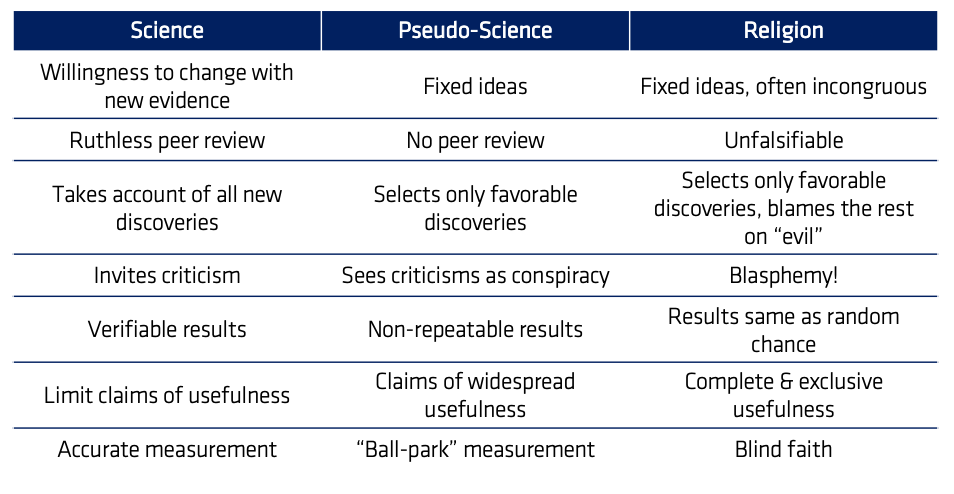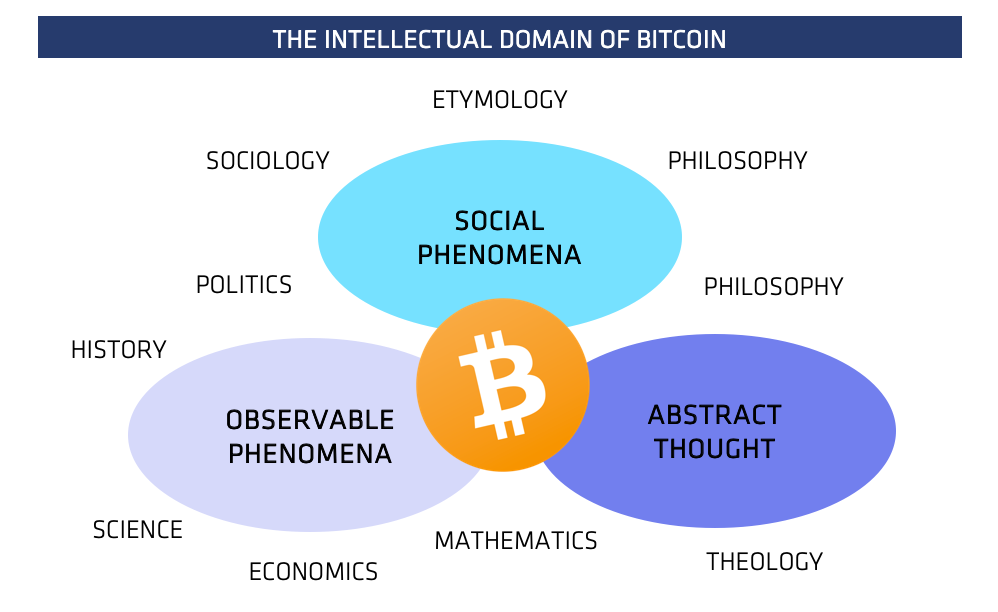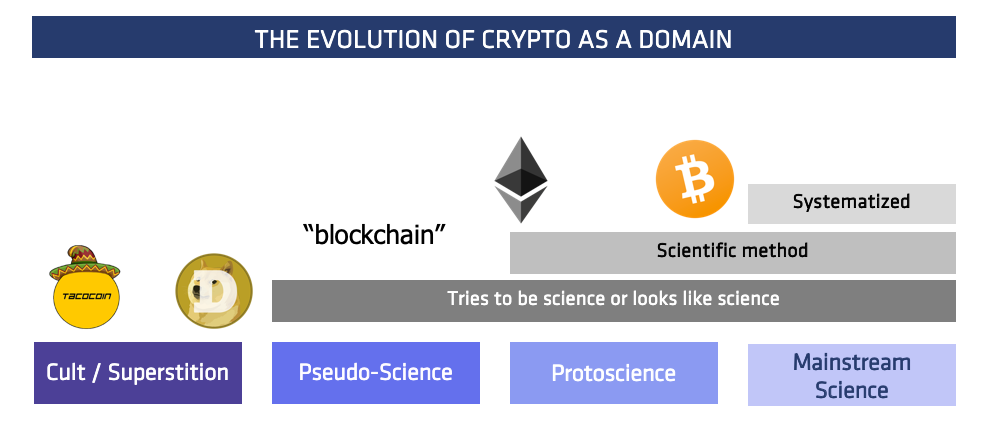November 11, 2019.
You’re probably wondering - why is Meltem writing about alchemy? I thought we were supposed to be talking about this whole “bitcoin” thing. Give me a moment to bend your ear, my friend, we’ll get there shortly.
Written by Meltem Demirors - Originally published at this link.
A Brief History of Alchemy

Alchemy comes from the Arabic word al-kimiya, where kimiya referred to the act of casting metal. Early alchemy was concerned with purifying and perfecting certain materials, such as transmuting base metals like lead into noble metals like gold, creating an elixir of immortality, or creating panaceas to cure any disease. One of the goals was untangling the mysteries of spirit and soul, and the role of humans in the larger mysteries of the universe, or achieving gnosis.
Side bar: As you may have now noticed, many crypto firms are named after ideas associated with alchemy. I find this deeply ironic, and by the end of this post, I hope you will too.
Alchemy often has negative connotations, and calls up images of sorceresses, witches, and snake-oil salesmen. Alchemists were seen as charlatans who wanted to “get rich quick” or uncover some esoteric mystery via dark magic. But practitioners of alchemy also had good intentions, and wanted to use knowledge as a tool to help humanity for the better.
Now more interesting than alchemy itself is the role these pursuits played in the development of branches of philosophy, chemistry, biology, physics, geology, and more. What began as a psuedo-science, with its roots in mysticism, began to evolve into proto-science with practical applications and very real implications for the future of humanity. Allow me to provide a (very) brief (and incomplete) history on alchemy.
The first few millenia of alchemy are largely lost to us today - but we know the Egyptians made significant advances in metallurgy, and the Chinese in chemistry. The first well-preserved records of alchemy begin in the Arabic world, around 800 AD, with an alchemist known as Jābir ibn Hayyān. He was one of the first to introduce the idea of experimentation to alchemy, writing:
The first essential in chemistry is that thou shouldest perform practical work and conduct experiments, for he who performs not practical work nor makes experiments will never attain to the least degree of mastery.
Note that Jabir was also a futurist. One of his goals in his studies and experimentation was to uncover takwin, or the ability to create artificial human life in a laboratory.
The tradition of Arabic alchemy was further extended in Europe 400 years later, following the Dark Ages, and during the Renaissance. For the first time, Arabic texts were translated into Latin, and theologians (students of religion) began to incorporate elements of chemistry, biology, and astrology into their research and writing. From 1300 to 1700, alchemists explored their art in search for medicines, mining, metals production, and other entrepreneurial areas. Many alchemists were also entrepreneurs who sought to solve new problems or take advantage of new opportunities using science.
In the 1600s, chemistry began to diverge from the general field of alchemy - morphing into a proto-science. Its earliest practitioners were Boyle (remember Boyle’s Law from Chemistry?) and Isaac Newton. Now interestingly, Boyle was one of the first chemists to keep track of his extensive experiments, to repeat them over and over again while making slight changes to the parameters, and publishing the methods and details of his work in language that could be widely understood. From the legacy of Boyle came a proliferation of chemistry breakthroughs including Lavoisier’s new categorization of the elements, away from Aristotle’s air, earth, wind, fire to metallic and non-metallic elements, and Mendeleev’s subsequent organization of these elements by atomic weight into the atomic table we use today.
So alchemy began as a psuedoscience, and certain areas of inquiry, like the study of materials, became proto-sciences, ie chemistry, and are now established branches of science. The discovery of new “truths” is a process that takes time, and is often defined by curiosity and experimentation. The new knowledge that is gained through these discoveries is then applied in a variety of ways and further commercialized to be useful in medicine, industrial processes, and more.
Lastly, I’ll also note that alchemy wasn’t simply about science. Science and spirituality have always been deeply connected, as science is the quest for understanding why and how phenomenon in the natural and supernatural world occur. Alchemy has influenced philosophy, sociology, psychology, and theology alike, and certain branches of alchemy have become their own mystical, religious communities.
Crypto is Largely Psuedo-Science
My view is that most of the “crypto industry” today is still in the psuedo-science phase. I also believe that “crypto” generally covers a large range of ideas, and further segmentation is likely needed, just as alchemy was a broad category of lines of inquiry until it was further refined into distinct sciences, psuedo-sciences, and religion / mysticism.

We can observe this by looking at:
- THE LIBERAL USE OF LaTeX FONT
- Calling everything a “whitepaper” in an attempt to legitimize the content therein
- The liberal use of largely meaningless and random words
- The reliance on memes and other esoteric forms of shared context and shared culture amongst practitioners
- The lack of empirical evidence supporting the claims of practitioners, and the dependence on appeals to authority and other methods of establishing relevance and validity
- The treatment of any criticism as a coordinated attack on “the community”
- The lofty and all-encompassing goals of many crypto projects, which span philosophy, politics, economics, networking, computer science, mathematics, and ethics, yet cannot clearly articulate how it will actually work
I’ve been speaking about crypto as financial alchemy for some time, and perhaps its fair to say that some small subset of crypto communities will continue to exist as psuedoscience and religious revival style movements, although I feel this era of “blind faith” is largely coming to an end.
In order for our industry to evolve and mature, there has to be a move from psuedo-science to proto-science, and it seems like the market agrees. Today it is unclear what it is that “crypto” achieves or how (aside from Bitcoin, see below, and to a degree, Ethereum), and there is little consensus on what a “blockchain” is - aside from the technical definition of the bitcoin blockchain and its function.
In order for “the industry” to be respected as such, industry participants and outside analysts have to be able to identify, gather, and analyze data to tell the story of why this industry matters and how it might impact technology, markets, politics, society, and our broader world.
As an investor, it’s my job to take this one step further and use the unique data, insights, and relevant context and expertise I have to identify where and when some of these changes might happen, and who will be poised to benefit, not just financially, but also socially and politically.
Evolving Into Proto-Science
Now the challenge comes of taking something so large, all encompassing, and esoteric, and refining it into its essential building blocks and discrete components for further study and analysis. Much has been written on this topic, but the intellectual domain comprising bitcoin is quite large. One of the reasons I enjoy working in this industry is precisely because a comprehensive understanding of bitcoin involves a mixture of so many different domains.

For many market analysts, Bitcoin is the easiest to understand largely because it is the most observed and best studied (thanks to ten years of on-chain data), and because it has branched into other existing and emergent sciences, as evidenced by academic institutions and research organizations gathering and analyzing data related to the bitcoin protocol, the bitcoin network, and applications and use cases of bitcoin (mostly financial). Perhaps another way of expressing this preference is to evaluate how developed and systematic the intellectual domain around bitcoin is, compared to other ctherypto assets and more esoteric ideas like “blockchain.”

Maybe there’s a more nuanced way to look at this, but to me there are a lot of things that are clearly in the cult / superstition section (love you forever Tacocoin), and a lot of things that are in the psuedo-science domain and attempting to become proto-science.
I’m very interested to see more work begin to happen in further segmenting, analyzing, and advancing the fields of inquiry around “crypto.” One of the things I enjoy most as someone who analyzes this space is making frameworks, charts, and graphs, in the hopes that people will take these and use them, improve on them, and share them widely. What do you think will propel “crypto” forward as a field of study and a legitimate area of inquiry?